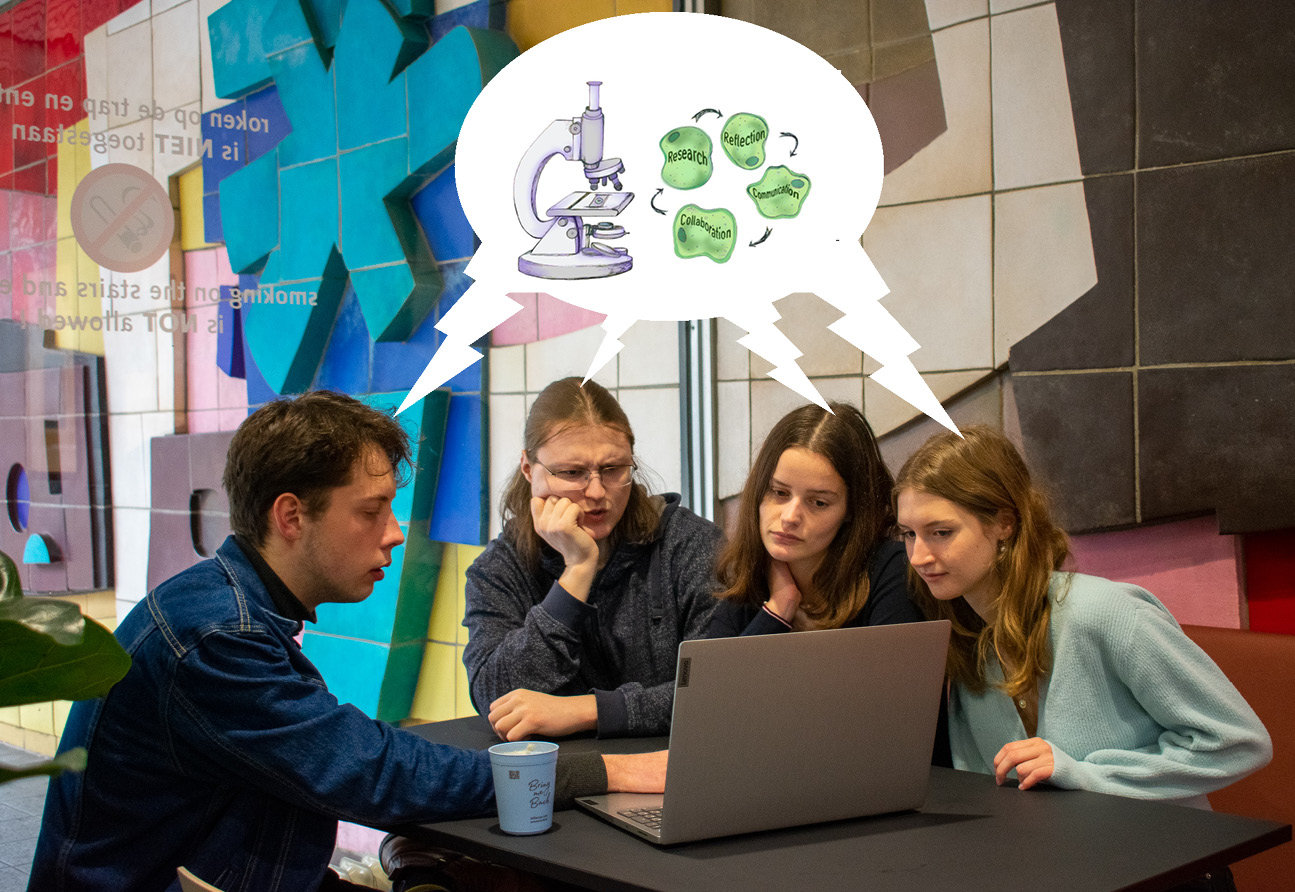Collaborative Science for Biomedical Breakthroughs (LDE)
Learn transdisciplinary skills, Do research, Explore new fields
Minor code: NB-MI-237
Do you want to explore a challenging topic with peers from diverse academic backgrounds? Do you want to do science that matters? Then this minor is the right choice for you.
Composed of two main parts, you will develop useful skills in areas of communication, collaboration, research and reflection while doing scientific research. The research focus of the 2023-2024 minor is Integrative Neuromedicine. You will contribute to this field by asking new questions and developing innovative projects to answer those questions.
You will work in small multidisciplinary teams coached by a research scientist and a PhD student. The teams collaborate with the other teams in the minor. Each week includes workshops and lectures on skill development, independent/group study and a knowledge integration symposiums

Faculty of Applied Sciences
ECs: 30 EC (15 EC is possible for EUR students)
Language: English
Maximum participants: 36
| Non-selection minor: | |
| Selection minor: | |
| Criteria: diversity of programmes, lottery within groups. | |
Participating institutions
Delft University of Technology, Erasmus University and Leiden UniversityFor whom?
This minor is offered to all bachelor students from Delft University of Technology, Leiden University and Erasmus University Rotterdam. Prior laboratory experience or biomedical background is not required; what we are looking for is an interest in science and desire for a challenging project.
Our main goal is to bring together students who want to explore how biomedical research works and are eager to contribute their ideas to ongoing, real-life scientific research. We are looking for students enthusiastic about engaging in a transdisciplinary environment, working with other students from different disciplines, where they can share ideas and experiences with each other, alongside experts from various fields. The skills you will develop are highly transferable to any field requiring learning, analysis, communication, and collaboration.
What will you learn
During your studies so far you have probably obtained extensive theoretical knowledge needed for your field and maybe some laboratory experience. However, many of the key real-life practical skills needed to work in teams and conduct scientific research are not fully explored in university education . This minor provides an opportunity to all students interested in science to acquire those valuable skills while engaging in challenging research and having fun.
During this minor you will:
- Get introduced to an area of current important scientific research (this year: Integrative Neuromedicine),
- Learn how to do a deep dive into a topic and analyse what you know or don’t know and and then address any gaps,
- Learn to collaborate with your research group members, other groups, people from other disciplines, interested parties (stakeholders).
- Learn to identify important scientific questions and then develop projects using available resources,
- Learn to formally communicate your scientific work to specialist and non-specialist audiences for various purposes,
- Get familiar with the research environment in a scientific laboratory,
- Experience all the steps in creating a research project,
- Learn how to critically review your work and the work of others.
Course overview
-
During the first quarter, you will explore research questions from the Integrative Neuromedicine Convergence Flagship. You and your group will pick a sub-topic that interests you. Together you will develop in-depth understanding about one of the Flagship’s questions.
-
In the second quarter you will use what you learned during the first quarter to develop answers. You will work in a research lab to test your ideas. You will learn about crucial elements of scientific research including research integrity, proposal development, funding, etc. The ideas you develop will be given back to the Flagship for scientists to build on.
Education methods
The minor is both structured and open in terms of challenging students to understand and solve current problems while guiding them in developing the tools to work closely in teams to solve them.
There will be weekly lectures and workshops provided by a variety of experts on four different threads: communication and collaboration (professional skill development), content/research and self-reflection. Each group will meet weekly with their supervisor. And finally each week will finish with a symposium with groups of students sharing what they’ve learned so far. The bulk of the time is spent in collaborative study directed by the group.
Register for this minor
It all will go through eduXchange.
More information
Video recording of our presentation at the Leiden minor market March 2023.